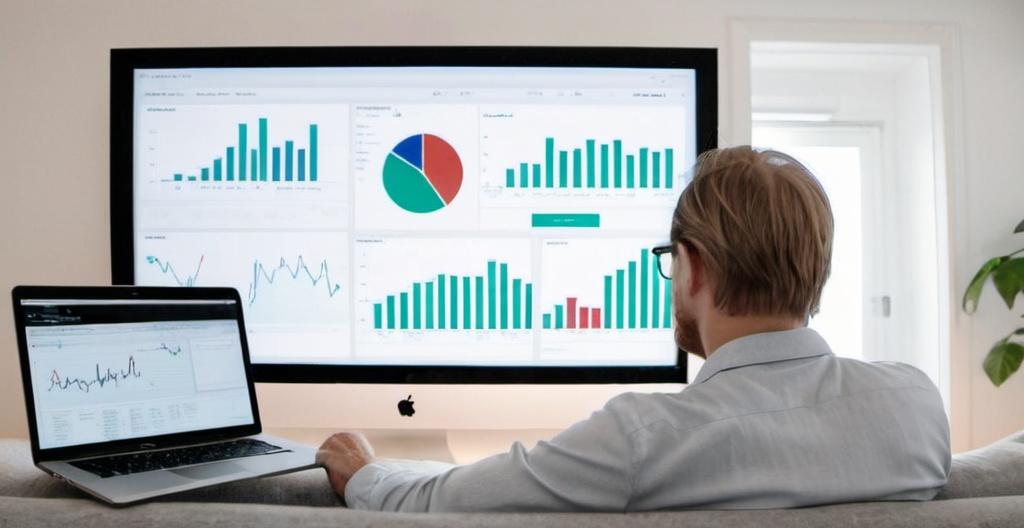Trading CFDs sounds simple enough—bet on whether something’s going up or down without owning it. But underneath that clean surface is a complex setup where your broker plays a much bigger role than you might think. These aren’t your average buy-and-hold investments. This is leveraged, fast-moving territory where having the right broker isn’t just helpful—it can be the difference between walking away with a profit or getting wiped out.
You’ll find hundreds of platforms offering CFD trading, but not all of them are built the same. If you’re serious about getting into it, start with a place that actually tracks and reviews these brokers in plain English. Broker Listings does exactly that—no gimmicks, no nonsense.

What a CFD Broker Actually Does
A CFD broker acts as the middleman between you and the market, offering access to contracts for difference across assets like stocks, indices, forex, commodities, and even crypto. You’re not buying the asset—you’re speculating on its movement. That opens the door to leverage, short selling, and fast trades. But here’s the part most people miss: in many cases, your broker is the one taking the other side of the trade.
This isn’t like buying shares on the open market. Many CFD brokers operate using a “market maker” model, meaning they set the prices and take the other side. If you lose, they win. That’s not necessarily a scam, but it means their interests don’t always line up with yours. Some brokers offset their risk in the real market, others keep it in-house. If they’re not transparent about which model they use, you’ve got a problem.
Leverage Cuts Both Ways
One of the big selling points for CFDs is leverage. You can control a large position with a small amount of capital. Sounds great—until the market moves the other way. That $500 trade can turn into a $2,000 hole in your balance faster than you can blink. Good brokers will cap your downside, use negative balance protection, and explain how margin works before you make your first trade. Bad brokers? They’ll let you run until the account is dust.
Regulation: It Matters More With CFDs
A regulated broker isn’t a guarantee of safety, but it’s the bare minimum you should accept. Unregulated CFD brokers can vanish overnight, refuse to process withdrawals, or manipulate spreads. And they do. Stick to platforms overseen by serious regulators—FCA, ASIC, CySEC, BaFin, not some shell authority in a tax haven.
Licensing also tends to come with limits on leverage, mandatory risk warnings, and audit requirements. That annoys aggressive traders but protects newer ones from blowing up. If your broker is regulated, at least you know there’s someone to complain to when things go sideways.
Fees, Spreads, and Hidden Costs
CFD brokers love to advertise “zero commission.” But that doesn’t mean zero cost. Most brokers make their money on the spread—the difference between buy and sell price. The wider the spread, the more you pay. Some also charge overnight holding fees (swap rates), inactivity fees, or markups on leveraged trades.
The trick is knowing how those costs add up. That flashy zero-commission ad doesn’t mean much if you’re losing $30 on spread every time you trade oil. Read the fee schedule. Look at real-world reviews. Use a demo account if the broker offers one. You’ll spot the nickel-and-diming before you risk real money.
Platform Quality and Execution Speed
CFD trading moves fast. The platform needs to keep up. If there’s lag, poor order execution, or constant slippage, you’re throwing money away. A decent CFD broker offers a stable platform, mobile trading, risk management tools, and charting that doesn’t look like it was built in 2003.
Execution speed also tells you something about how the broker runs their books. If orders are constantly filled at worse prices than expected, they might be manipulating the spread or delaying execution in their favor. That’s not just annoying—it’s expensive.
Don’t Trade Blind
CFD trading isn’t for beginners. It requires quick thinking, emotional control, and a solid understanding of risk. But even the most skilled trader can’t perform if the broker they’re using is quietly working against them.
Don’t trust a broker just because they look polished or offer high leverage. Dig into their terms. Check their regulation. Start small. And use sites like Broker Listings to find brokers that actually pass the sniff test. A broker is more than a middleman here—they’re the one holding your money, your trades, and sometimes your future profits. Treat that choice like it matters. Because it does.

